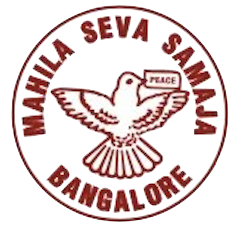Our Founders
From 'Abala' (Deprived) to 'Sabala' (Empowered)
It is impossible to talk about the Samaja without introducing Parvatiamma Chandrashekara Iyer, Rangammal Aravamuda Iyengar, IKamalamma Dasappa and K.S. Seethamma, the four pillars who created and nurtured it over several years. It is important to understand these stalwarts and their roots and thoughts, in order to appreciate the value system, objectives and the culture of this organization.
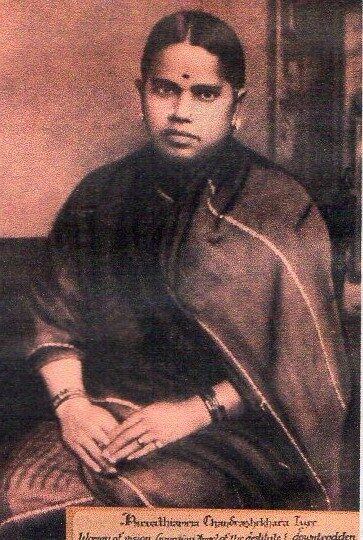
Parvatiamma Chandrashekara Iyer
'Ammavaru' - the Compassionate
When she was ten years old, a young Parvati had been married to the second son of the Dewan Peshkar of Cochin State. Even as a young girl, she had watched her widowed mother’s struggle to care for her family.
The travails of early childhood and the loss of her parents left a lasting impression in the mind of the young girl. But Parvati was made of sterner stuff and the trying experiences developed qualities of self-reliance and a sense of responsibility.
After her marriage to Sri Chandrashekara Iyer, Parvatiamma set up house and became a model wife, respected and admired by her husband’s family for her intelligence, good judgment and compassion. She supported her husband in his ascent to the position of the Chief Justice of the Court of the princely state of Mysore.
Meanwhile, she also developed a desire to educate herself and devote time to learning and acquiring knowledge. Her education and a tough childhood made her deeply sensitive to the suffering of others.
With the encouragement of her husband Parvatiamma decided to give shape to her ideas and started the Seva Sadan Society now better know as Mahila Seva Samaja on Oct 1st 1913 in Bangalore. The aim of this society was to improve the plight of oppressed women which later on turned into an English medium School for girls.
The Gentlemen sympathizers
While the women ruled the roost, there were a significant number of men, who stood as backbone to this hardworking team of women. They were affectionately called as the
Gentlemen Helpers’ Committee.
In the initial years, there were twelve members assisting the core management council. In the first year, Dewan Bahadur G.S.Chakravarti was the President of this committee and the members included Justice K. S. Chandrasekhara Iyer, Rao Bahadur M. Shama Rao, Mr. K.Chandy, Sri. M. Ramachandra Rao and Mr. D. D. Kanga.
The women were empowered enough to conceive a vision and implement strategies towards that, yet they did not allow their egos to restrict involvement from men. The women sought ideas, but were discerning enough to decide when to accept or reject a suggestion. It was an inspiring and balanced mix of reliance and independence.
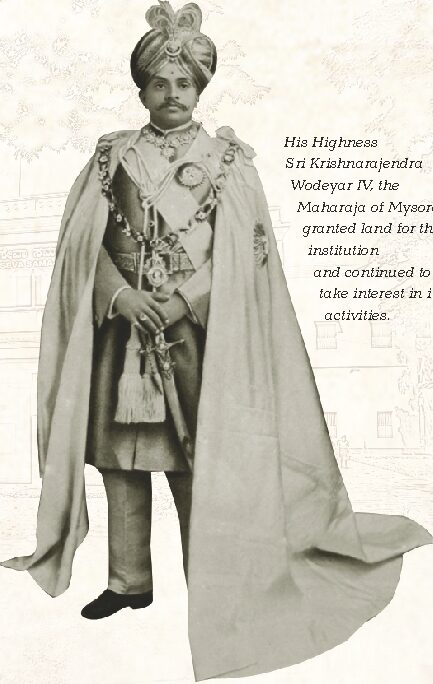
His Highness Sri Krishnarajendra Wodeyar IV, the Maharaja of Mysore
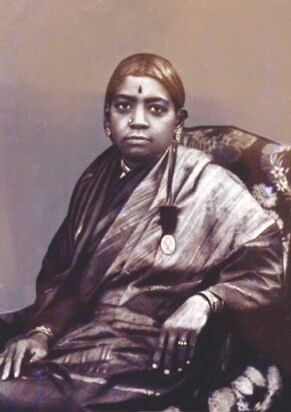
Rangammal Aravamuda Iyengar
The modest benefactor
The daughter of A. Rangaswami Iyengar, Revenue Commissioner of the erstwhile princely state of Mysore, Rangammal was married to Sri. G. Aravamuda Iyengar, who later became the Chief Secretary of Mysore. Though she was born in a well-to-do family and married into another family of equal status, she was a humble person with a soft corner for unfortunate women, particularly young widows, whose lives, about a century ago, were harsh and filled with misery.
She found a kindred spirit in Smt. Parvathiamma Chandrashekhara Iyer and together they worked to uplift oppressed women and to help better their lives through education and training in craft. As a co-founder of the Samaja and its first Secretary and Treasurer, Smt. Rangammal, with her financial acumen and charitable nature was instrumental in laying a firm foundation for the Samaja in its initial stages. She was a regular donor, who made generous contributions of utilities such as furniture, books, clothes, silver articles and cash. She was awarded the Public Service Medal and Killats by His Highness, the Maharaja of Mysore.
The intrepid educationist
The young 19-year-old mother of two little girls, aged two years and eight months, watched helplessly as the rushing waters of the Kabini river swallowed her 25-year-old husband on his birthday and with it the happy, comfortable life that was to be
theirs. Kamalamma’s husband Hadya Dasappa was on his way to becoming a Government official at a higher level with a brilliant career when his life was cut short by this tragic accident. Her future would have become desolate, but destiny had other plans.
Kamalamma’s father decided to give her an English education and admitted her into Maharani’s High School. She studied in Madras (now, Chennai), under Dr. Sarvepalli Radhakrishnan and became the third woman graduate of the Mysore State.
Parvathiamma found in Kamalamma the ideal teacher for the Samaja. During her long association of nearly four and a half decades from 1920-1965 with the Samaja, Kamalamma Dasappa introduced many innovative schemes such as the Special English Middle school, Special Morning school and a co-education schooling system.
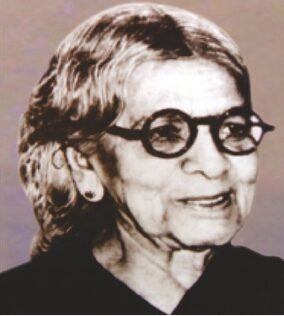
Smt. Kamalamma Dasappa
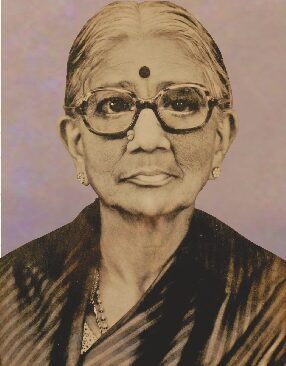
Smt. K. S. Seethamma
A firm believer in education for all
Seethamma joined Samaja as a Science teacher when the High School had just been started. For fifty years she taught with the same passion and dedication, a perfect model of a Science teacher. She was a stickler for scientific accuracy and attention to detail, whether it was about handling lab equipment or labeling a diagram.
The same disciplined and meticulous approach marked her administration as the Head Mistress. She developed a successful rapport with the officials of the Department of Education, who in turn supported her. She was affectionate and treated all the students with love, care and concern. Having been a good sportswoman herself she encouraged sports activities in the Samaja to the fullest.
Seethamma took over the reins after Kamalamma’s demise. Being an excellent administrator and reformist, she established the Samaja as a premier educational institution between 1965 and 1986. It was during her tenure that the Samaja was elevated to its highest point of achievement in sports as well as academics.
Current Management Team
Our school is administered by a Managing Committee comprising of only women who are highly qualified. Most of the members include old students of the school and retired staff members. All the members work on an honorary basis as service to the society and education of the children.
